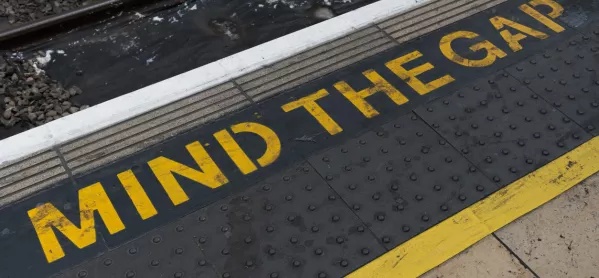Since 2015, when the Scottish government launched its Attainment Scotland Fund, around £500 million has been invested in a bid to improve the education outcomes of disadvantaged pupils.
However, the Programme for International Student Assessment (Pisa) 2018 results show that while Scottish schools are relatively good at ensuring pupils’ performance is not dictated by their background, there was no statistical improvement on this front between 2015 and 2018.
According to the Scottish government, social background is now - following the publication of the Organisation for Economic Cooperation and Development’s latest Pisa research - “less of a factor in performance” and the study corroborates “wider evidence that the attainment gap is closing”.
However, closer scrutiny of the figures shows that improvement in this area came before first minister Nicola Sturgeon made it her mission to close the poverty-related attainment gap, with the launch of the Scottish Attainment Challenge in 2015.
Pisa: Are the Scottish and English education systems less different than we thought?
Pisa in Scotland: Government hails ‘sharp rise in reading ability’ - but opponents point to ‘record-low’ results
More on Pisa: 2018 results reveal a mixed picture for Scotland
The figures - published today - show that the strength of the relationship between performance and social background last year “remained similar to 2015, but lower than in 2009”.
Pisa: Is Scotland closing the attainment gap?
When asked if he was disappointed that the figures showed no progress since 2015, despite the extra money that had been invested in closing the gap since then, education secretary John Swinney told Tes Scotland that closing the poverty-related attainment gap was “a long-term challenge” and Scotland would “see the fruits of that over time”.
He also put the rise in mean score achieved by Scottish 15-year-olds on the reading assessment - which rose from 493 in 2015 to 504 last year - down to the focus on literacy that had come as a result of the Attainment Challenge.
Mr Swinney said: “The encouraging element I take from these results is the fact that from the very outset of the attainment challenge when the government pursued this approach in partnership with local authorities, we recognised the importance of ensuring we improved performance on literacy.
“So we should take considerable encouragement from that as an illustration of how the Attainment Challenge, and the focus it has brought to the delivery of education in Scotland, has then resulted in an improvement in the performance that has been achieved in relation to reading.”
Scotland’s largest teaching union, the EIS, said the Pisa results highlighted the value of Scotland’s comprehensive education system, which offered “greater equality of opportunity to pupils from all backgrounds”.
According to the 2018 Pisa results for Scotland, the variation in reading test scores explained by students’ background in Scotland was 8.3 per cent last year. This was similar to 2015 and 2012 but lower than the 2009 figure of 14.4 per cent.
The variation in maths test scores explained by students’ background was 7.9 per cent in 2018. This was similar to 2015 and 2012 but lower than 2006 (14.6 per cent) and 2009 (16.3 per cent).
The variation in science test scores explained by students’ background was 10.1 per cent in 2018. This was similar to 2015, 2012 and 2006, but lower than 2009 (16.4 per cent).




